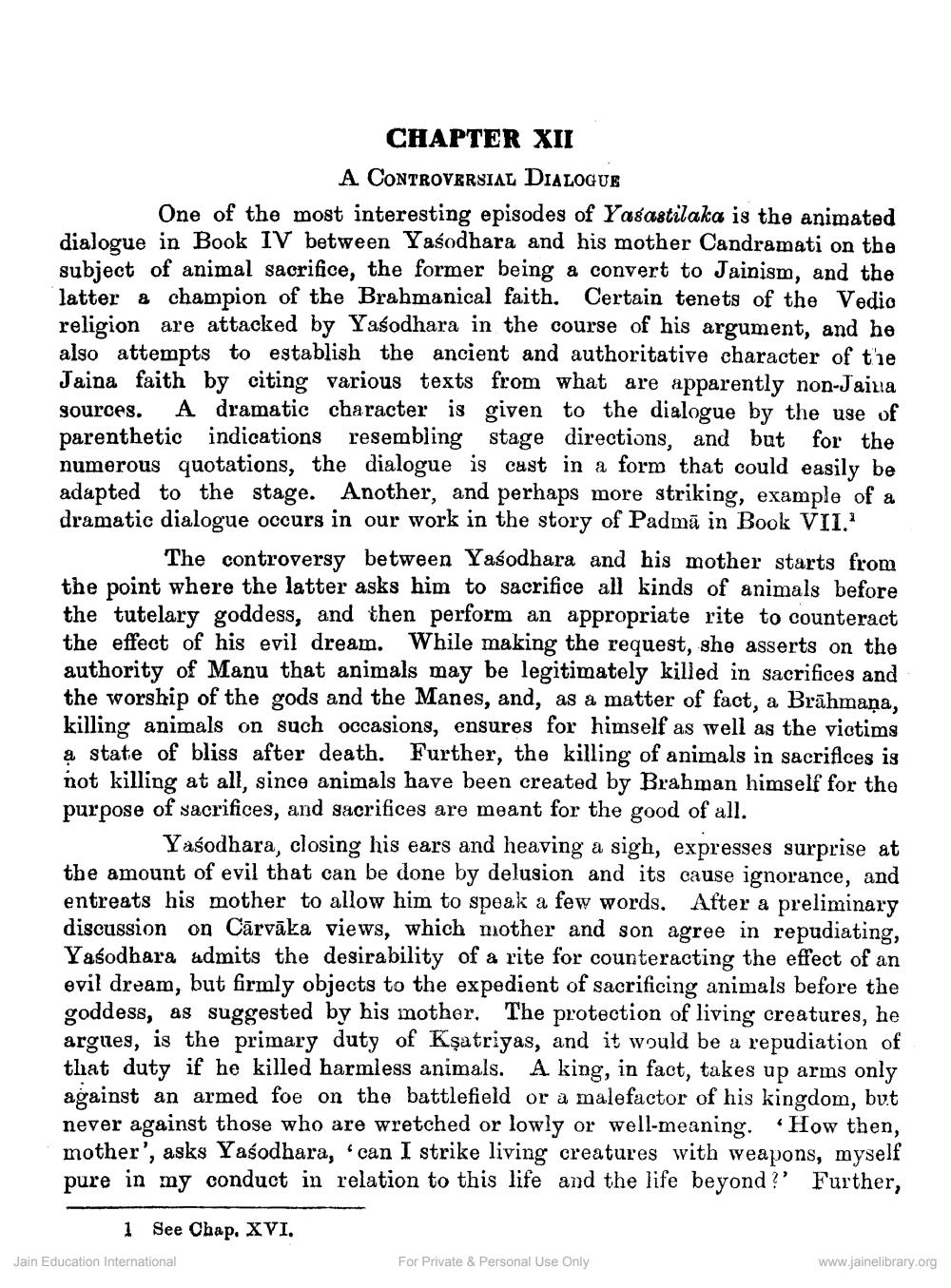________________
CHAPTER XII
A CONTROVERSIAL DIALOGUE One of the most interesting episodes of Yasastilaka is the animated dialogue in Book IV between Yasodhara and his mother Candramati on the subject of animal sacrifice, the former being a convert to Jainism, and the latter a champion of the Brahmanical faith, Certain tenets of the Vedio religion are attacked by Yaśodhara in the course of his argument, and he also attempts to establish the ancient and authoritative character of the Jaina faith by citing various texts from what are apparently non-Jaira sources. A dramatic character is given to the dialogue by the use of parenthetic indications resembling stage directions, and but for the numerous quotations, the dialogue is cast in a form that could easily be adapted to the stage. Another, and perhaps more striking, example of a dramatic dialogue occurs in our work in the story of Padmā in Book VII.
The controversy between Yasodhara and his mother starts from the point where the latter asks him to sacrifice all kinds of animals before the tutelary goddess, and then perform an appropriate rite to counteract the effect of his evil dream. While making the request, she asserts on the authority of Manu that animals may be legitimately killed in sacrifices and the worship of the gods and the Manes, and, as a matter of fact, a Brāhmana, killing animals on such occasions, ensures for himself as well as the victims a state of bliss after death. Further, the killing of animals in sacrifices is not killing at all, since animals have been created by Brahman himself for the purpose of sacrifices, and sacrifices are meant for the good of all.
Yasodhara, closing his ears and heaving a sigh, expresses surprise at the amount of evil that can be done by delusion and its cause ignorance, and entreats his mother to allow him to speak a few words. After a preliminary discussion on Cārvāka views, which mother and son agree in repudiating, Yaśodhara admits the desirability of a rite for counteracting the effect of an evil dream, but firmly objects to the expedient of sacrificing animals before the goddess, as suggested by his mother. The protection of living creatures, he argues, is the primary duty of Kşatriyas, and it would be a repudiation of that duty if he killed harmless animals. A. king, in fact, takes up arms only against an armed foe on the battlefield or å malefactor of his kingdom, but never against those who are wretched or lowly or well-meaning. ·How then, mother', asks Yaśodhara, can I strike living creatures with weapons, myself pure in my conduct in relation to this life and the life beyond?' Further,
1 See Chap. XVI.
Jain Education International
For Private & Personal Use Only
www.jainelibrary.org




